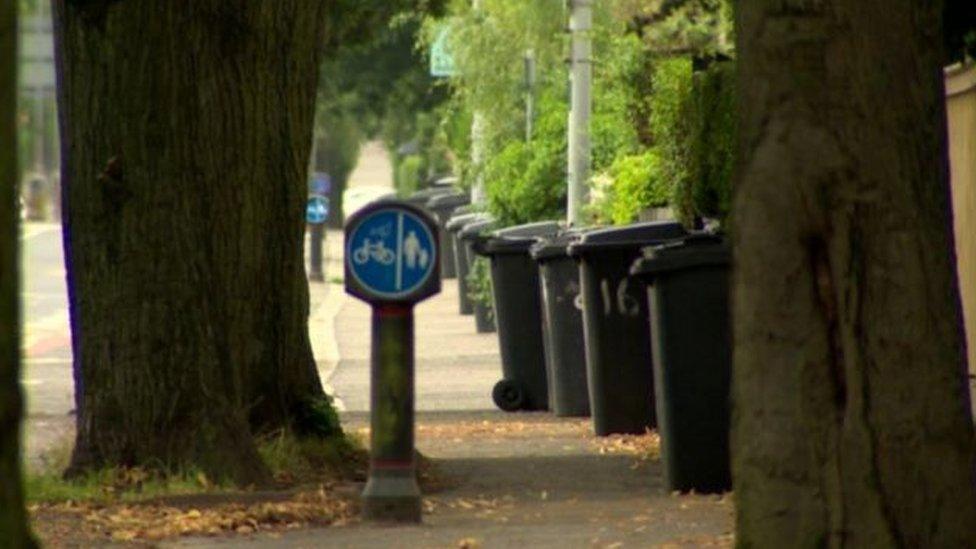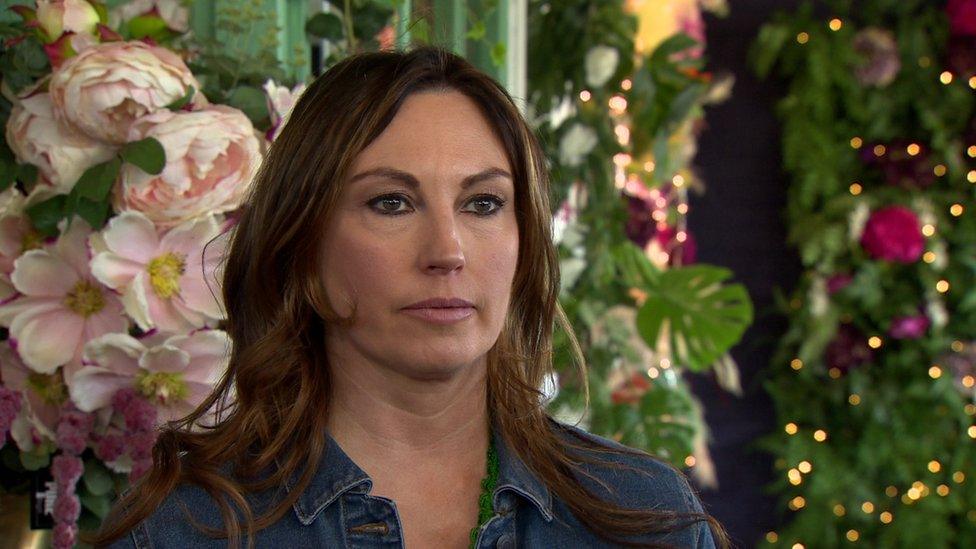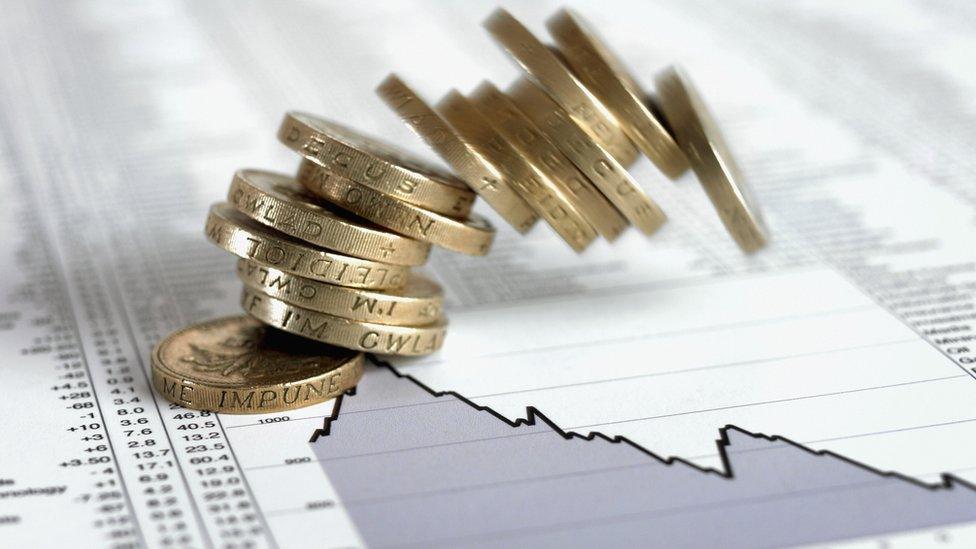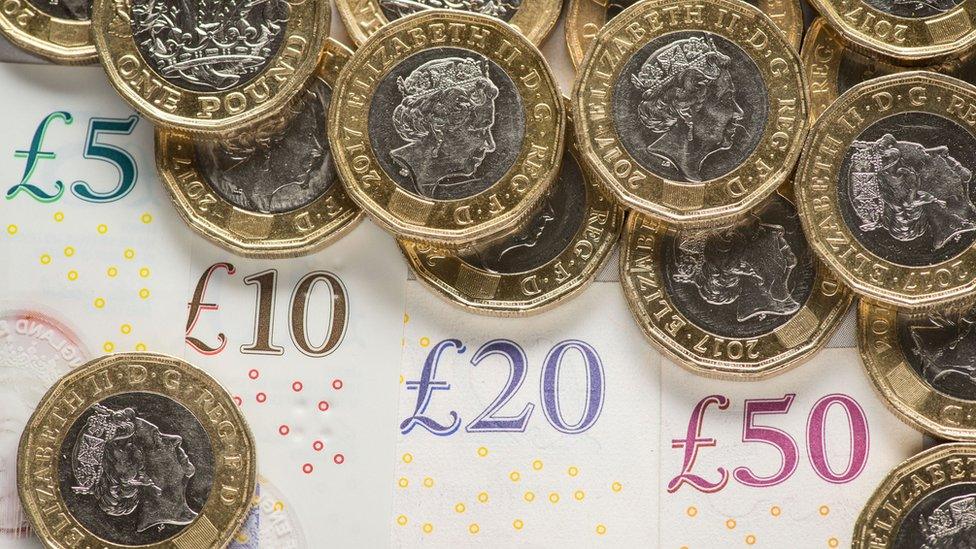NI rates bills sent out to homes and businesses
- Published
- comments

Some of the money from rates goes towards services such as bin collections
Rate bills are due to be issued to homes and businesses across Northern Ireland as of Thursday.
For the second year, the Northern Ireland Executive has frozen the part of the rates bill it is responsible for to help households and businesses.
Domestic rates are made up of a regional rate - set by the assembly - and a district rate set by councils.
Domestic rates cover 833,000 homes and business rates cover 75,000 premises in Northern Ireland.
All of Northern Ireland's 11 councils have agreed rates increases for 2022-23.
The highest percentage increase was by Mid Ulster District Council at 3.9%.
The lowest percentage increase was agreed by the Antrim and Newtownabbey council area, which announced a 1.9% rise.
The money generated by rates is used to pay for public services, with bills decided against the value of a property.
What support is available for businesses?
In March, a £50m package of Northern Ireland Executive support was announced.
Businesses will receive a one-month rates holiday, except the likes of larger food stores, off licences and utilities.
A number of sectors - retail, hospitality, tourism, leisure, childcare, newspapers and airports - will receive a three-month rates holiday.
The rates holiday amount will be discounted and shown on the overall bill.
The Small Business Rates Relief scheme has also been extended for another year.
That means:
Businesses with a rateable value of less than £2,000 will receive a 50% reduction;
Businesses with a rateable value of between £2,000-5,000 will receive a 25% reduction;
Businesses with a rateable value of between £5,000 - 15,000 will receive a 20% reduction.
What support is available for households?
Relief is available for those on Universal Credit, people on a low income and pensioners who live on their own.
Land and Property Support (LPS) is encouraging anyone facing difficulty paying their bill to contact them for advice on payment arrangements and support available.

Business owner: Penny Hamilton, Florist, East Belfast

"The amount of rent I'm paying reflects the rates, so it is quite a significant amount of money that we are paying," Ms Hamilton told BBC News NI.
While she said it was a lot on top of fuel and increases and inflation, she thought "it was inevitable it was coming back".
"We always knew that we would have to again and we had to pay it for 18 years and we survived. We know we need to pay them to keep public services running," she said.
"It's a double-edged sword. It's nice not to pay them but what do we do if we don't? The money has to come from somewhere," she added.
"As a small business I am looking at alternative ways of generating extra sales and thinking outside the box.
"With fuel prices going up, we are going to have to put delivery charges up - our delivery driver was shocked the last time he filled up the van.
"But we have to keep going and keep people in jobs," she said.

Related topics
- Published17 February 2022

- Published9 July 2021
